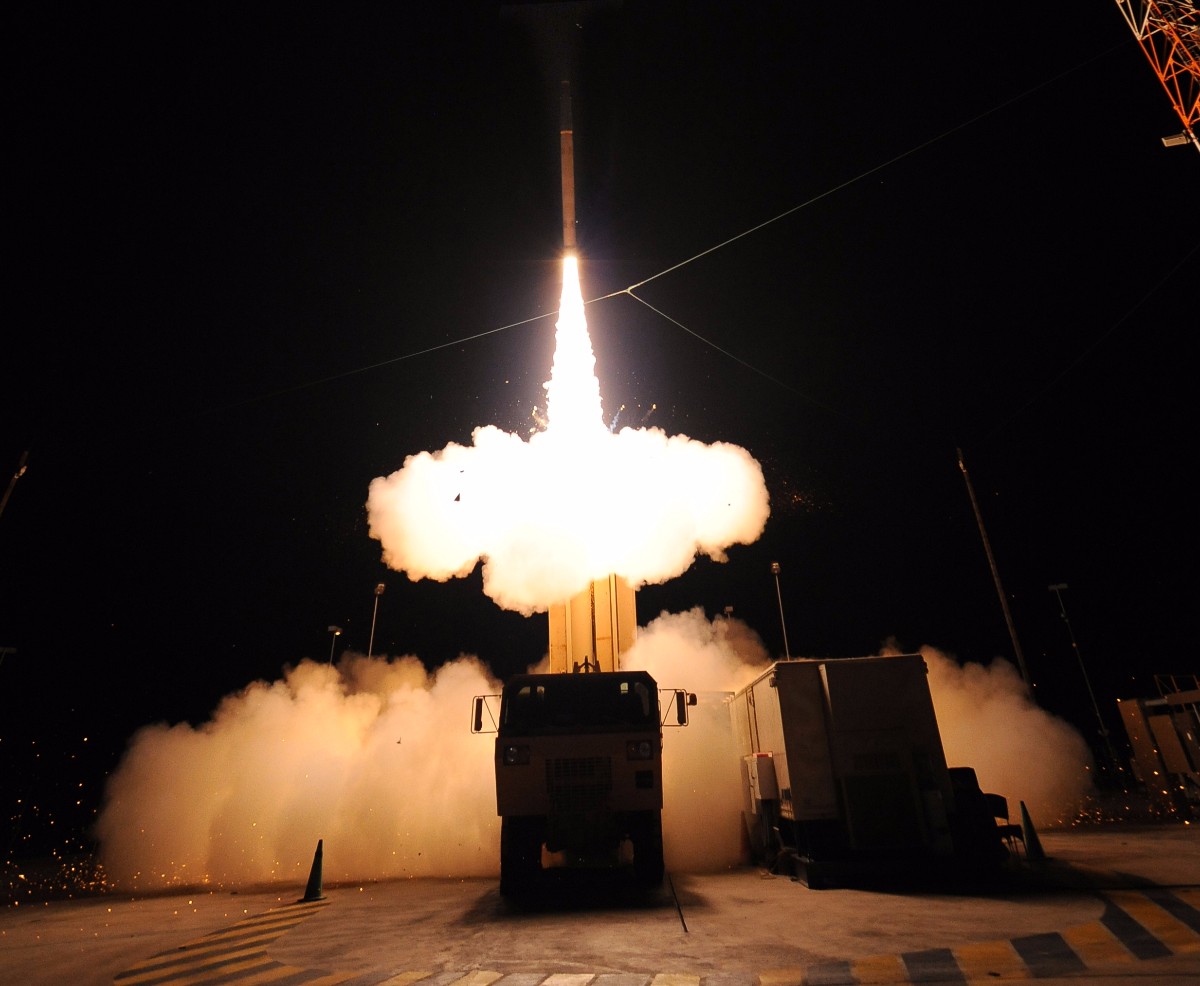 US Missile Defense Agency / flickr
US Missile Defense Agency / flickr
THAAD and Aegis: Creators of Peace or Instability?
With Poland breaking ground for an Aegis Ashore ballistic missile defense (BMD) system and the United States now deploying a THAAD missile defense system in South Korea, their deployments may create more insecurity rather than security.
Today’s programs for defending against ballistic missile attacks are not as ambitious as Reagan’s Strategic Defense Initiative. However, they still run the risk of creating an arms race with countries that perceive this system as threatening, even if they are not explicitly targeted by it. To ameliorate this dilemma, states that are not a target of this system should cooperate with those that deploy them on issues that have caused their installment in the first place.
Unlike the missile defense concepts of the past which were geared towards defeating a large-scale nuclear attack, today’s systems are designed to counter nations with relatively few ballistic missiles and short range missiles. With at least thirty-one countries possessing ballistic missiles, states are naturally inclined to obtain a defensive system that can counter the offensive capabilities of others. When states acquire a BMD system, they do so only to protect themselves against threats. Unfortunately, surrounding states may perceive this as an escalatory move since they will undermine their weapons systems. States like China and Russia, who view such deployments in their regions as directed towards them, oppose their presence because it prevents them from threatening damage to cities and military bases.
The problem with increasing one’s own security, is that it can create feelings of insecurity and force the insecure state to increase its own security. This security dilemma exists because there is a lack of communication between the parties involved and a lack of identification of what has caused the insecurity in the first place. Even though Poland and South Korea’s BMD systems are directed towards rogue states like Iran and North Korea respectively, these systems could easily be redirected towards other states. Weapons are inherently ambiguous. They cannot always be easily identified as offensive or defensive, and they cannot delineate the targeting of one foe over another. To avoid this conflict spiral, nations should make conciliatory efforts to show the other side that the purpose of the weapons system is not aimed? towards them but another. Both NATO and South Korea have made it clear to Russia and China that their BMD systems are directed towards other states, but this has failed to satisfy concerns.
Escaping this security dilemma can be accomplished through greater cooperation with major powers on issues that affect the security of NATO and South Korea. By removing the threats in these regions, the BMD systems will no longer be needed. Russia and China will have to cooperate with the international community on increasing the severity of sanctions against Iran and North Korea, or offer economic assistance in exchange for their ballistic missile programs.
If these concerns are not addressed, then NATO and South Korea will have to balance the security benefits and costs based on the need and likely effectiveness of such systems. Since both Russia and China view their nuclear-armed ballistic missiles as central to their deterrence and a substitute to their inferior conventional military strength, they are more likely to install countermeasures on their missiles or will implement destabilizing nuclear strategies. Additionally, a BMD system will remove any possibility of arms reduction from either side since it threatens their second strike capabilities. In fact, it may increase production of fissile materials in each country, which would threaten the passage of the Fissile Material Cut-off Treaty. Since Pakistan is the only country refusing to sign the treaty, Russia and China’s cooperation on other non-proliferation issues is essential.
Because the United States is the primary supplier of BMD systems to both NATO and South Korea, is an ally to both parties, and is concerned with nuclear security in both regions, the country should take a more proactive role in settling the security dilemma in both areas. If neither Russia nor China are willing to meet NATO and South Korea half way, the United States must step in on their behalf. Greater diplomatic involvement by the US in Europe and East Asia should convince China and Russia that the security situations in their respective regions requires their attention and cooperation. Not participating will ensure that the BMD systems will remain in place until the security environment improves.





